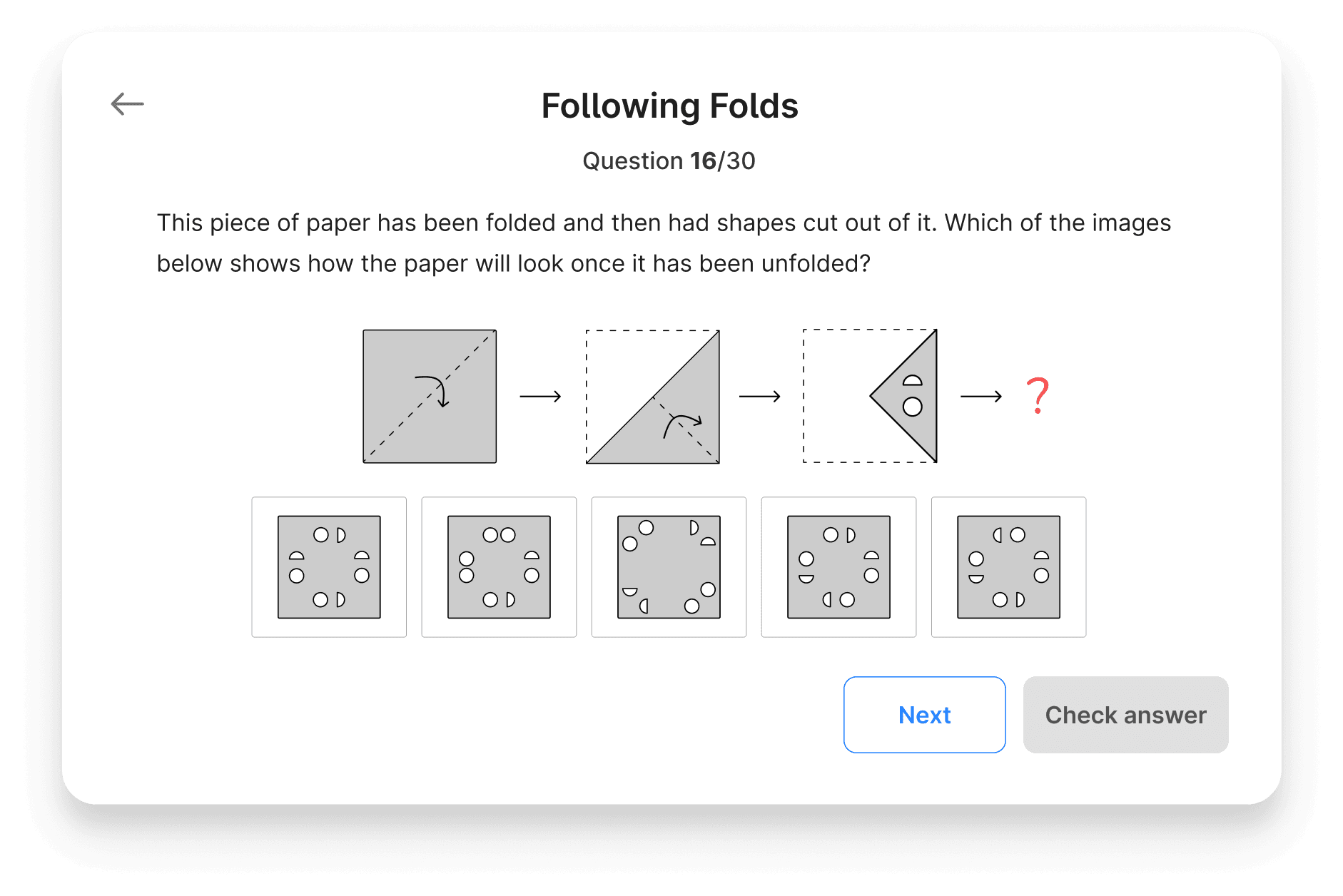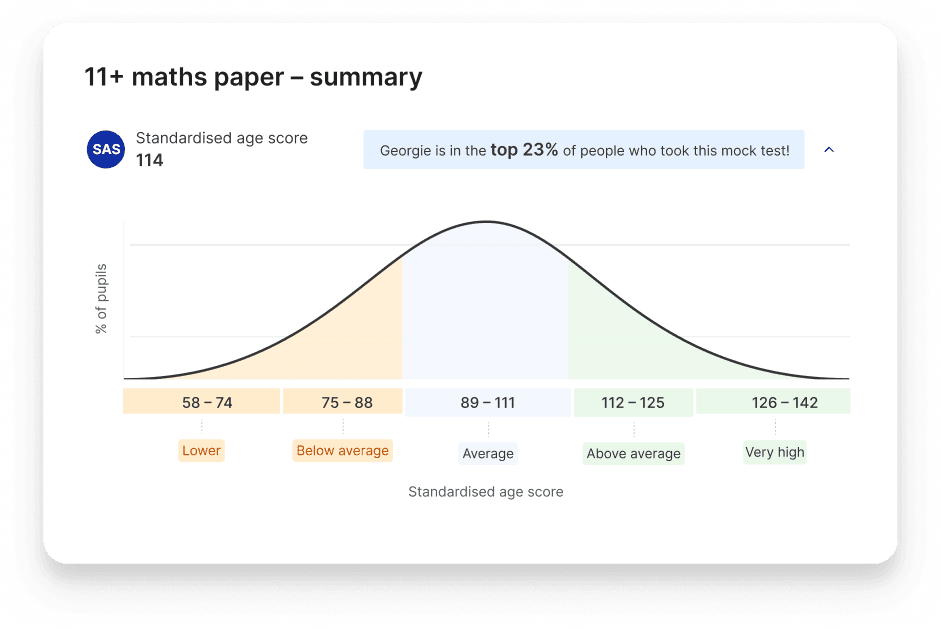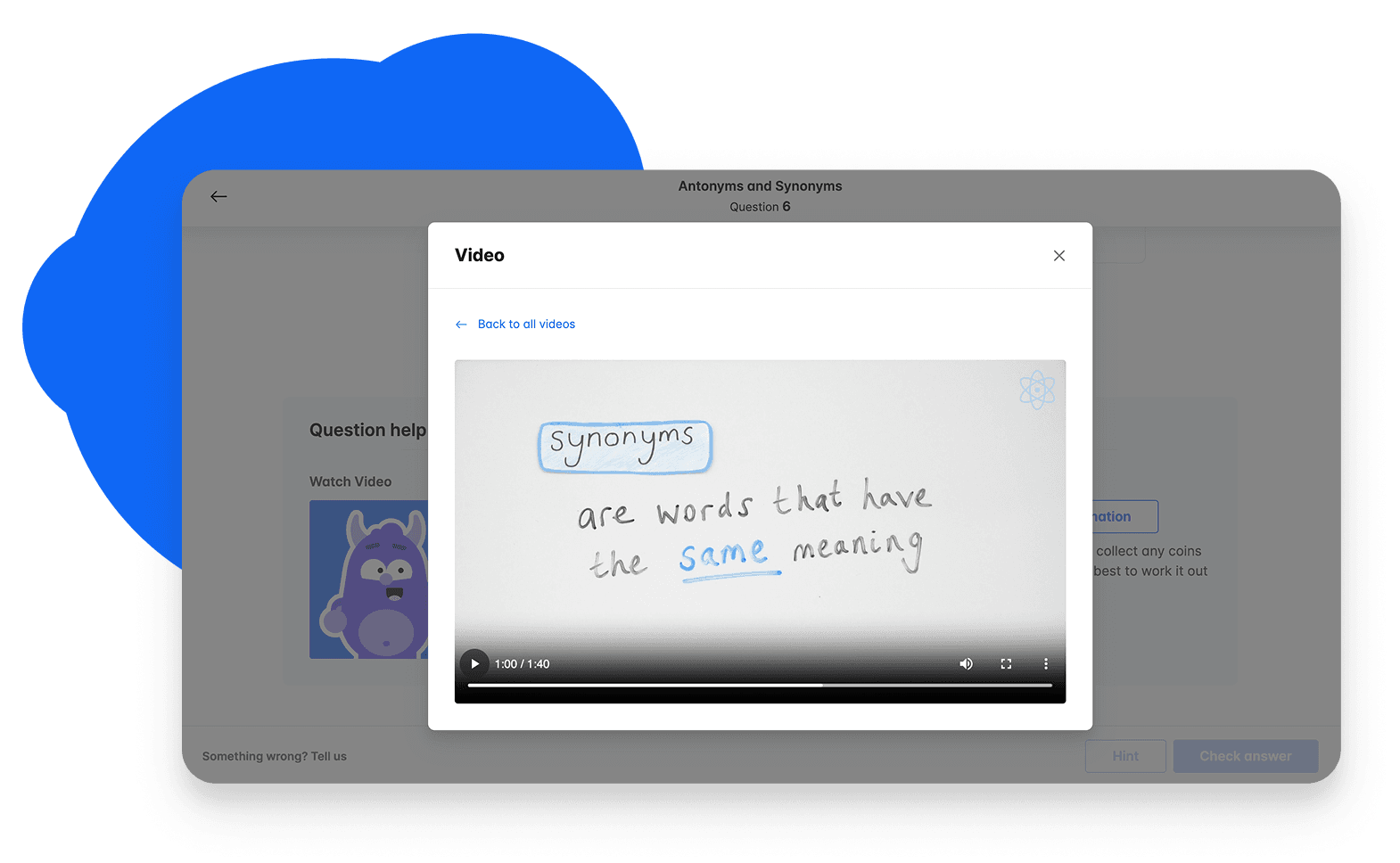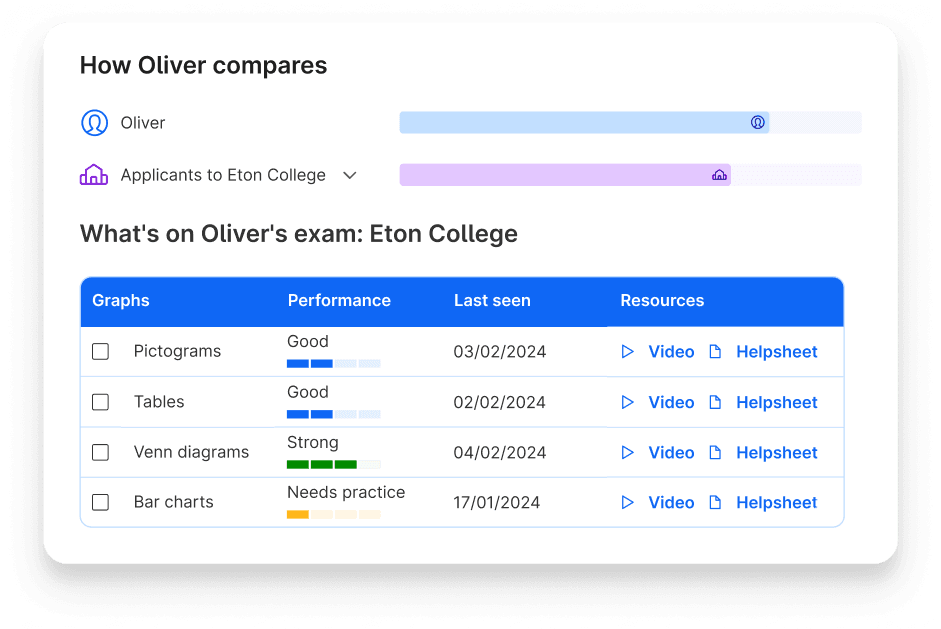UKiset: what it involves and how to help your child prepare
By Atom | Apr 8, 2025, 11:03 AM
Contents
Is your child applying to a British independent school from overseas? They might need to take an exam known as UKiset.
In this article, we'll cover what the UKiset exam involves, the types of scores you and your child's target schools will receive, and how you can help your child prepare.
Key takeaways
UKiset assesses students’ academic strengths, weaknesses and learning preferences. Schools use these results to determine whether they are likely to thrive in an English-speaking environment.
The exam is open to students aged 9–18 of any nationality. However, a basic understanding of English is recommended.
The exam costs £295 if taken on Monday–Friday, or £324.50 if taken at the weekend.
Your child’s UKiset School Report can be sent to up to 5 schools for free. If you would like it to be sent to any additional schools, a fee of £50 will be charged per school.
The exam lasts approximately 3 hours. It is divided into three sections that test reasoning, reading and listening, and essay writing.
Atom Home helps children build the core skills and confidence they need to excel in the UKiset and thrive in a British school environment.
What is UKiset, and who can take it?
UKiset is an entry test. It’s used by independent (private) schools in the UK to assess whether an international student is likely to thrive in an English-speaking school.
The test identifies academic strengths, weaknesses and learning preferences. Schools use the results to help them identify the most suitable students. Families can also use the results to find the best schools for their child.
UKiset can be taken by any child aged 9–18, from any nationality. However, it’s recommended that students have a basic understanding of English so they can follow test instructions.
Children can take UKiset for a variety of reasons, including:
to apply to a British international school
to apply to a UK language school or international study centre
to track their progress in English language learning (either requested by their English teacher, or for their own knowledge)
Over 250 schools use UKiset in their admissions process. Many schools use it as a first-round test, after which shortlisted children are invited for further exams and interviews. Some schools might ask you for your child’s UKiset results to decide if they are eligible for a school place.
Applying to UK schools from overseas?
Are you considering a UK school for your child? Learn about the UK school system and how to apply to British schools.
How can I apply for my child to take UKiset?
You can register your child to take the exam on the UKiset website. You should register at least two months before your chosen schools’ deadlines to make sure there is enough time for UKiset to arrange your child’s appointment and process the results.
Even if you don’t yet have any potential schools in mind, you can still register your child to take the test. UKiset offers an optional service to put you in touch with a local consultant to help you find the school.
When you register, you’ll need to pay a one-off fee. This costs £295 if your child takes the exam between Monday–Friday, or £324.50 if you would like your child to take the exam at the weekend. This fee covers the costs of:
Registration
Test arrangement
Invigilation
Processing your child’s results, and sending them to you and/or your agent
Providing a full UKiset Profile and sending this to your chosen schools
On the application form you will be asked to select your preferred test location. UKiset can be taken at authorised test centres in over 130 countries around the world, at certain schools, or at the UK office. Or, your child can take the test on the internet at home or in their current school, with an online invigilator.
After you submit your application form, UKiset will email you with available dates at your nearest test centres or with instructions for taking the test online.
When your child takes the exam they will get a UKiset Profile which can be used to apply for up to five schools of your choice. If you would like to apply to more than five schools, it costs £50 for each additional school. You will get your child’s test results within 3 working days. Your child’s results are valid for one year, after which they will need to retake the test. If you would like your child to retake the test, they can do this after four months.
What is the format of the UKiset exam?
The UKiset exam takes about three hours to complete. It’s split into three sections:
Reasoning: 30–45 minutes (online)
Reading & Listening: 60–90 minutes (online)
Essay Writing: 30 minutes (handwritten)
Your child will be allowed a short break in between each section. Calculators and phones are not allowed, but your child will be encouraged to use a pen and spare paper to make notes.
Section 1: Reasoning
The first section of UKiset tests skills in vocabulary, non-verbal reasoning and mathematical reasoning. Section 1 is taken online and lasts 30–45 minutes.
This section assesses how well your child thinks and solves problems. It’s an adaptive test, which means the questions will adjust to their ability level. If they answer questions correctly, the test will gradually become more challenging. This can give schools a clear picture of your child’s cognitive skills and potential.
Unlike vocabulary and maths, non-verbal reasoning is not usually taught at school. It assesses how well we can use logic and critical thinking to solve problems without language. This involves analysing shapes, diagrams and images.
Pictured: a non-verbal reasoning question on Atom Home – the UK's leading exam prep website for independent schools.
Resources to support UKiset Reasoning
Section 2: Reading
The second section of UKiset tests your child’s receptive language skills. It is taken online and consists of multiple-choice questions and tasks where your child will need to fill a gap in a word/sentence. This section lasts around 60–90 minutes.
This section can help schools see how accessible the British curriculum is for your child.
Resources to support UKiset Reading & Listening
Section 3: Essay Writing
The final section of UKiset tests your child’s written language skills. This is a handwritten task That lasts around 30 minutes.
Your child will need to write a short essay in English, based on an age-appropriate topic. These topics are open-ended to allow for discussion, description and comparison. For example:
Describe your ideal day.
Schools shouldn’t have a uniform. Do you agree?
If you won the lottery, what would you do with the money, and why?
The examiners are looking for students who can clearly express their opinion, and support it with evidence. High scores are awarded for logical structures, broad vocabulary, and accurate spelling and grammar.
Atom’s top tips for a well-structured essay
Spend a few minutes brainstorming ideas.
Next, spend 5 minutes planning the structure of the essay in bullet points. There should be a clear introduction, a few main paragraphs, and a conclusion.
Write up the essay.
Spend at least 5 minutes checking it through thoroughly.
For more top tips, take a look at Atom’s guide to creative writing.
What is the UKiset Profile?
You’ll receive your child’s UKiset results a few days after the exam. This is a summary and analysis of their scores. Your child’s profile will be shared with all of the schools you selected when registering your child for UKiset.
You’ll receive five different types of scores:
Standardised scores
You’ll receive your child’s age-standardised scores in verbal, non-verbal, and mathematical reasoning. This score is standardised against tens of thousands of British students who are the same age as your child – in both state and independent schools. This helps you see how your child compares to other children of the same age.
Standardised age scores tend to range from approximately 60–142, where a score of 100 indicates an average score. Find out more about
National percentile ranking (NPR)
Your child’s NPR shows where they would be positioned compared to 100 randomly selected British students of the same age. Children are ranked from the lowest scores (1st percentile) to the highest scores (99th percentile). The 50th percentile indicates a child working exactly average for their age.
Stanine ranking
A stanine is a curve that is produced to visualise NPR. On a stanine curve, you will see nine proportional bands (from 1–9). If your child is shown in the seventh band on the curve, this indicates that they are in the 70th percentile for their age group, and therefore above average.
Pictured: a child's standardised age score (114) and stanine ranking after taking an Atom Home mock test.
Two average scores
Your child’s profile will also include two average scores. One average score will include the verbal reasoning result, and the other will exclude it.
UKiset produces these scores so that your child’s current English level does not unfairly affect their overall score. Your child’s English score is independently calculated using the results from the Reading & Listening test.
English CEFR level and raw score
The final scores in your child’s profile will be your child’s English CEFR level, and their raw score in the test (the total number of correct answers).
CEFR stands for the Common European Framework of Reference for Languages. This is an internationally recognised score which represents your child’s current level of academic English. There are six levels ranging from A1–C2, where A1 represents basic English and C2 represents full language mastery.
In addition to the scores above, your child’s target schools will receive more comprehensive data. This will include your child’s handwritten essay, a breakdown of how they perform compared to other children studying at independent schools, and their likelihood of passing future exams. Schools will see:
Your child’s Profile Report (the report you receive as their parent)
Your child’s self-introduction video (submitted at the registration stage)
Standardisations for national and independent school cohorts
Your child’s handwritten essay
Your child’s future predicted grades in GCSE, A level and the International Baccalaureate Diploma (IB) in a range of subjects
Implications for teaching and learning
What is a good UKiset score?
Every school has its own admissions criteria, so a ‘good’ score will depend on the schools your child is applying to.
Section 1: Reasoning: Some particularly competitive schools might be looking for standardised age scores of at least 125 on the reasoning part of the test.
Section 2: Reading & Listening: schools usually look for an English CEFR level of B2 or above. Your child will need to have a confident grasp of the English language to be able to keep up with teaching and learning.
Section 3: Essay Writing: schools mark this section themselves. Their scoring criteria will vary, but most schools are looking for evidence of a clear and well-reasoned argument, use of a logical structure, varied and interesting vocabulary, and correct spelling, grammar and punctuation.
How can I help my child prepare for the UKiset?
Preparing for the UKiset can feel challenging – especially when there are no official past papers to guide revision. But with the right support and resources, your child can build the skills they need to approach the exam with confidence. Here’s how you can help at home.
1. Build strong English skills
The UKiset assesses your child’s English reading, writing, listening and speaking skills. Regular exposure to the English language is key to success, especially for students who are learning English as an additional language.
Encourage your child to:
Watch English-language TV shows and movies with subtitles. This helps develop listening skills and connect spoken words with written language.
Read every day – for fun and variety. Choose fiction, non-fiction, comics, or even magazine articles. The goal is to make reading enjoyable, consistent and diverse.
Listen to English audiobooks or podcasts. Listening to native speakers improves pronunciation, vocabulary and comprehension.
Have regular conversations in English. Ask open-ended questions about their day or opinions to encourage clear expression and fluent speaking.
Write regularly. Encourage your child to keep a daily journal or write short stories. This boosts writing fluency and helps them develop their voice.
Top tip: With Atom Home, your child can strengthen their English skills through interactive comprehension, spelling and grammar questions that adapt to their ability – and boost confidence over time.
2. Support their wellbeing and motivation
Preparing for the UKiset shouldn’t feel like a chore. It’s important to build healthy study habits and protect your child’s wellbeing throughout the process.
Take a “little and often” approach. Short, focused sessions are more effective (and less stressful!) than cramming.
Incorporate rewards and downtime. Positive reinforcement, regular breaks and time to relax will keep your child engaged and avoid burnout.
Focus on progress, not perfection. Celebrate improvements and effort, even when mistakes happen.
Did you know? Atom Home keeps children motivated with badges, points and progress tracking. The platform adapts to your child’s learning level to ensure they’re always challenged – but never overwhelmed.
3. Use the best tools for the job
UKiset exam papers aren’t published, so finding the right practice materials can be tricky. That’s where Atom Home comes in.
Our award-winning learning platform gives your child all the preparation they need:
Over 100,000 interactive questions in English, maths, verbal and non-verbal reasoning
Unlimited mock tests that mirror real exam conditions
Smart recommendations based on your child’s strengths and areas for improvement
Access to holiday live lessons and on-demand video tutorials from expert teachers
Helpful data for parents – so you can support their progress with confidence
Bonus: You’ll also receive support through webinars, Q&As and dedicated parent resources – so you're never on this journey alone.
Pictured: a child's topic performance on Atom Home, and comparison to other children using Atom to apply to Eton College.
Start your journey to a UK school
We’ve helped over 100,000 families with English learning and entrance exams. Ready to get started? Try Atom Home for free!
Contents




